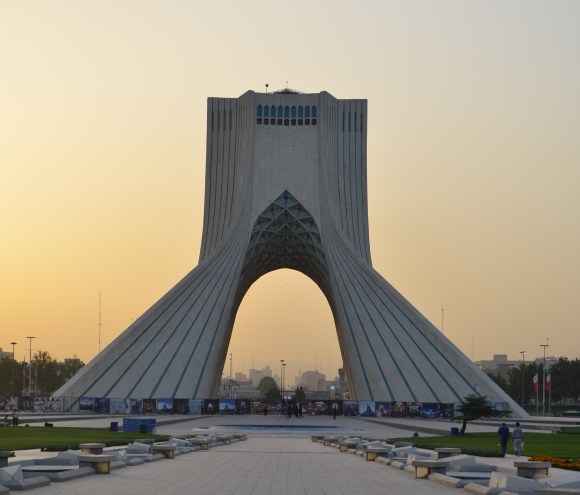
On 27 July 2016, thousands of volunteers, translators, writers, researchers, students and internet users saw history made with the Farsi Wikipedia’s five hundred-thousandth article—the culmination of a thirteen-year effort to compile the largest online encyclopedia in the language.1
The milestone article was wheelchair rugby league (English-language summary), a version of rugby played in wheelchairs. The occasion brought forth excited statements from Farsi Wikipedia editors, who saw it as a validation of their efforts over the last decade. “It is a very good feeling,” editor Alfa80 said, “to complete a stage—like getting through the five days to the weekend or when the countdown of a traffic light is finished.”
Ladsgroup happily noted his “heavenly joy for me to see the huge difference between where we started and where we are now.” Long-time Wikipedian ماني had similar thoughts on the site’s journey from December 2003, when it was created, and today:
The first year I started editing the Persian [Farsi] Wikipedia, almost no other active editor showed up. Given my experience with a lack of teamwork spirit in Iran, I didn’t anticipate things would change in the future—but it did. The next years, the diversity between new people made our teamwork a real challenge; I found it difficult to imagine that we put all of this behind and concentrated on improving quality and quantity of this encyclopaedia. But we did. Watching this process gives me hope that we can continue this success, and I am hopeful that we will be stronger in other areas too.
Today, the site has about four thousand registered active editors and is the largest Wikipedia that uses right-to-left scripts.
The site has been assisted in their efforts by the Wikipedia Education Program, which aims to engage students and academics across disciplines so that they will use and publish on Wikipedia. Participants have faced challenges in obtaining needed resources and citations to write adequate Wikipedia article, as journal articles and research material are generally not available free of charge to Iranian university students. We’ve tried to addressed this through the Wikipedia Library, which many Iranian editors of Wikipedia are eligible for, and believe that the program in Iran is now a success story.

One major obstacle to expanding the Farsi Wikipedia is low digital penetration in the areas where Farsi is spoken. Iran is an example of this. Most Farsi Wikipedia users reside in the country, and it has over 43 million internet users. However, bandwidth speeds there average around two mbit/s, about one-tenth of the global average, and filtering and censorship limits access to reliable sources. In recent years, Farsi Wikipedia users have taken part in various Internet censorship circumvention projects to tackle these challenges; they have not become widespread among all internet users but have nevertheless helped the team of writers active on Wikipedia pages and harbor aspirations for change. Furthermore, the Berne Convention for the Protection of Literary and Artistic Works is not recognized in Iran and some other Farsi-speaking countries, so users of the Farsi Wikipedia face ethical challenges every day in using Farsi sources that might have unrecognized intellectual property rights.
The Farsi Wikipedia can improve in fields like medicine, dentistry, engineering, chemistry, physics and mathematics. There have been published articles in Persian in astronomy, botany, geography and zoology, but these subjects cannot compare to the corresponding entries available in English both in terms of quality and numbers of entries.
Yet there is a high hope for the future of the ongoing project that is the Farsi Wikipedia project, such as in a recent increase in the number of scientific articles in Wikipedia Persian translation projects—an indicator that more university professors in Farsi-speaking regions are encouraging students to work collectively towards completing a Wikipedia entry.
Mohsen Salek (Mardetanha)
Mohammad Heidarzadeh (Darafsh)
Farsi Wikipedia
Footnotes
- Farsi is spoken in Afghanistan, Iran, Tajikistan, and parts of Uzbekistan, Iraq, and the Persian Gulf states.
In brief
- Metrics and activities meeting: The monthly meeting of Wikimedia Foundation staff was held on 28 July. Staffers presented on community consultations, editor trends on Wikimedia sites (including the potential impact of mobile anonymous editors), and harassment on our sites. You can watch the livestreamed video on YouTube and Wikimedia Commons.
- Death of a Wikipedian: Kevin Gorman, a US Wikipedian who came up in the Wikipedia Education Program in the early years of this decade, has passed away at the age of 24. A graduate of the University of California, Berkeley, Gorman was known in Wikimedia circles for his work on men’s rights pages and writing about female philosophers, as well as being one of the community members who exposed the editing of Wiki-PR. His family has created a Facebook memorial page, and community members are leaving tributes on his English Wikipedia talk page.
In briefs compiled by Ed Erhart, Editorial Associate, Wikimedia Foundation

Can you help us translate this article?
In order for this article to reach as many people as possible we would like your help. Can you translate this article to get the message out?
Start translation